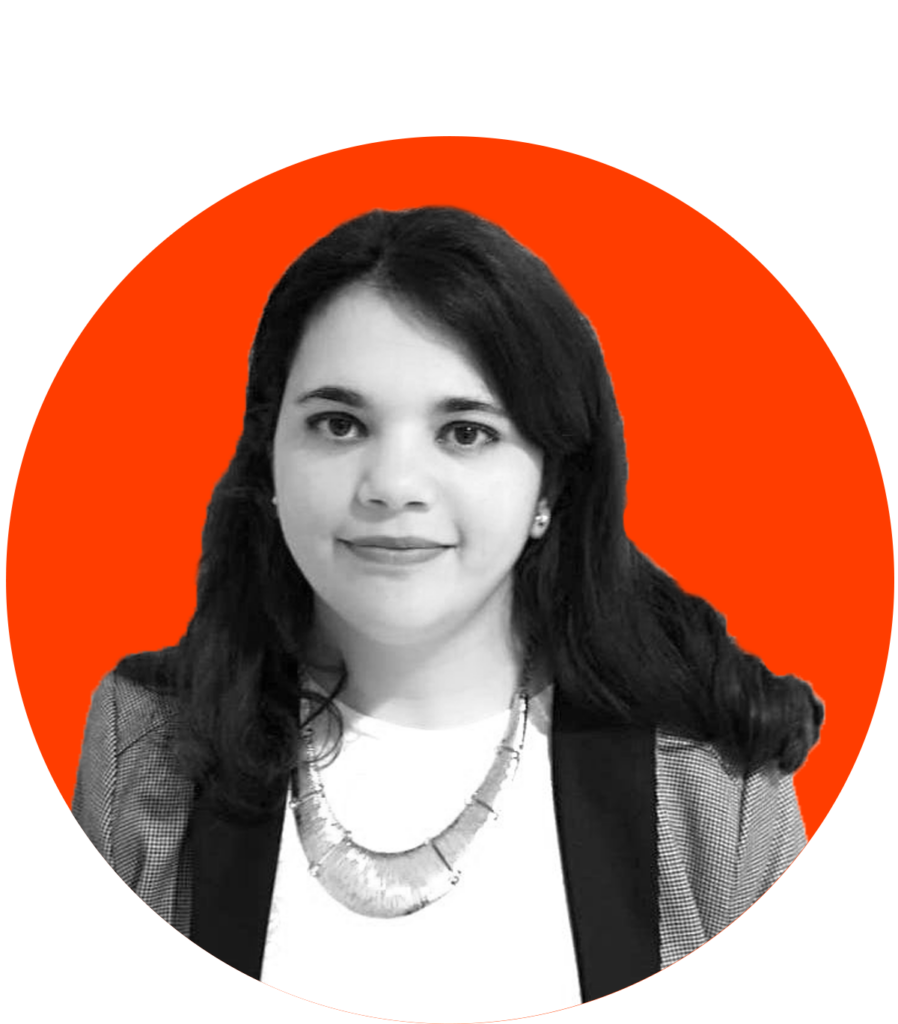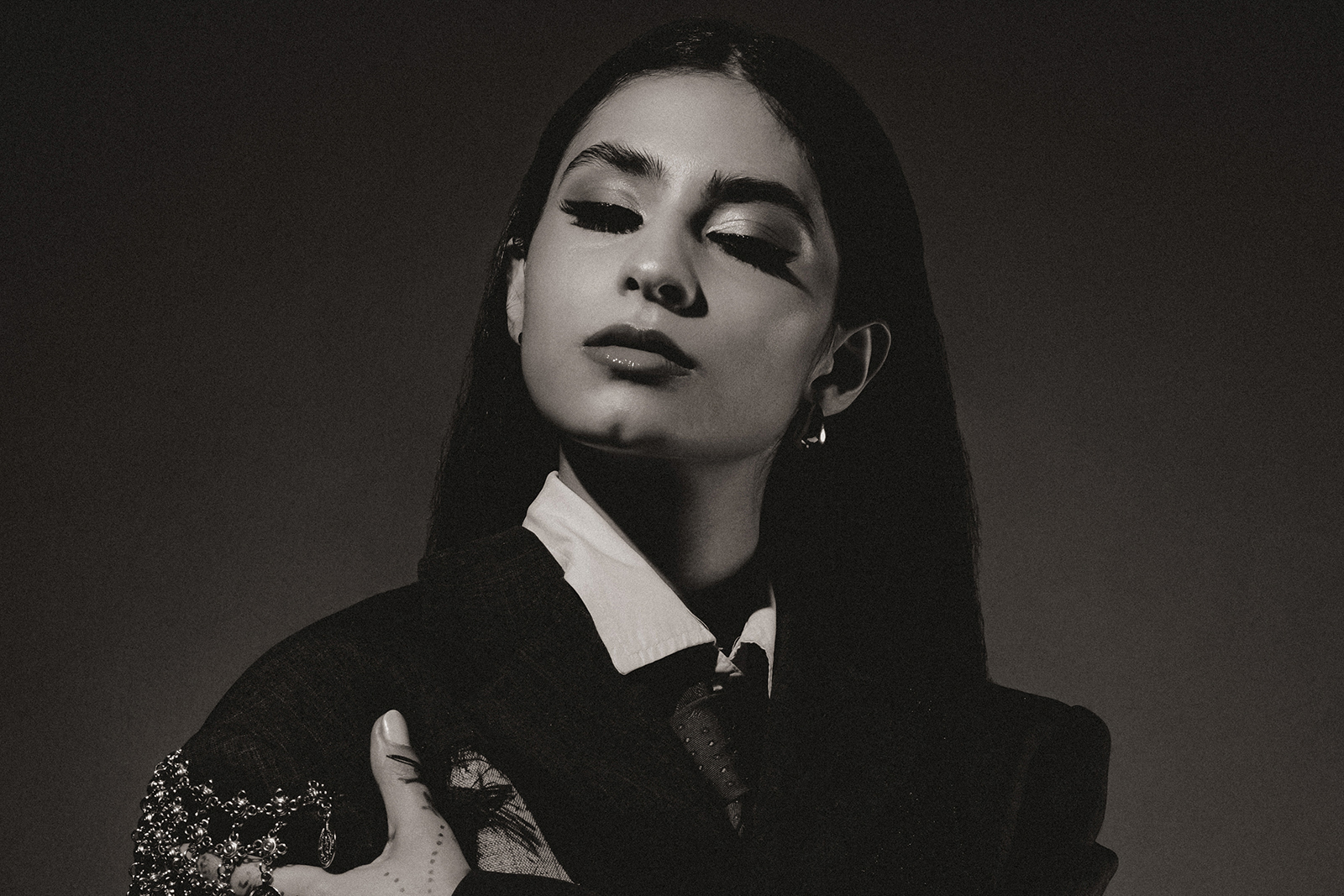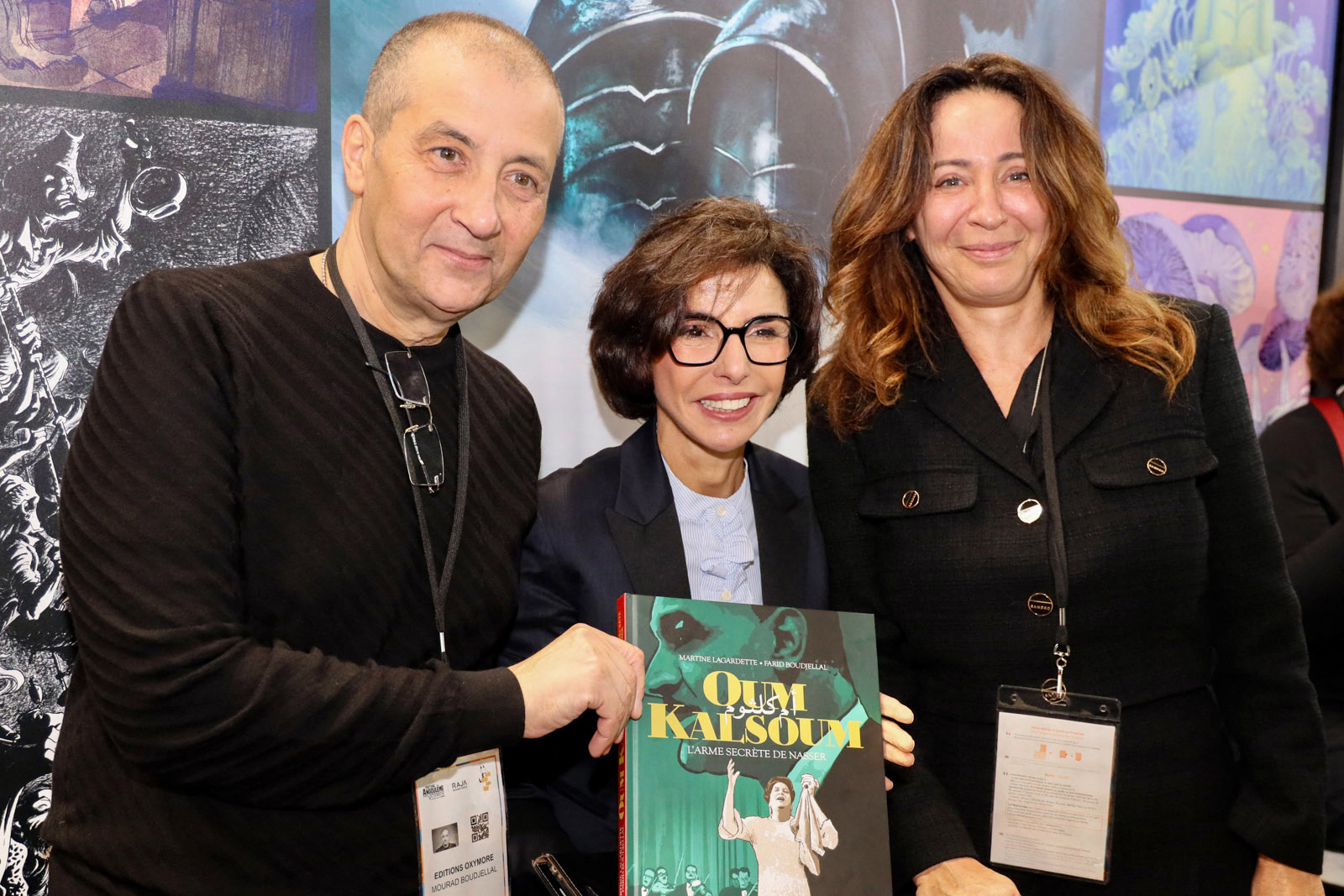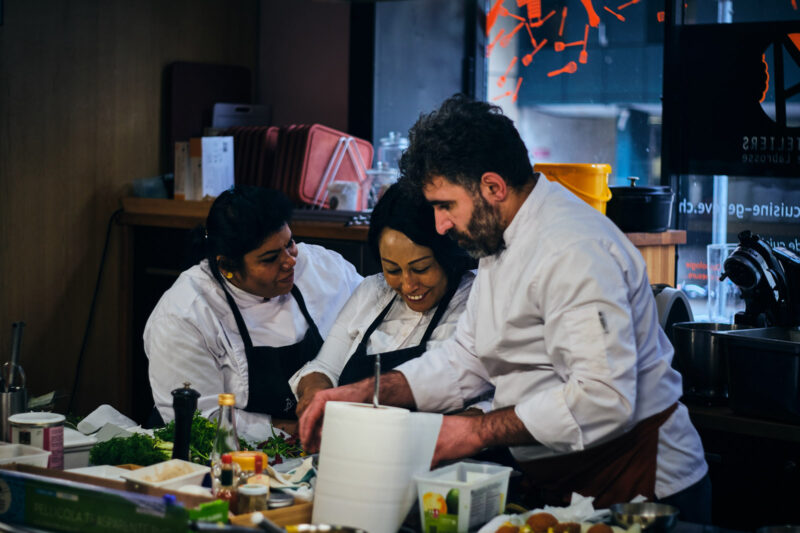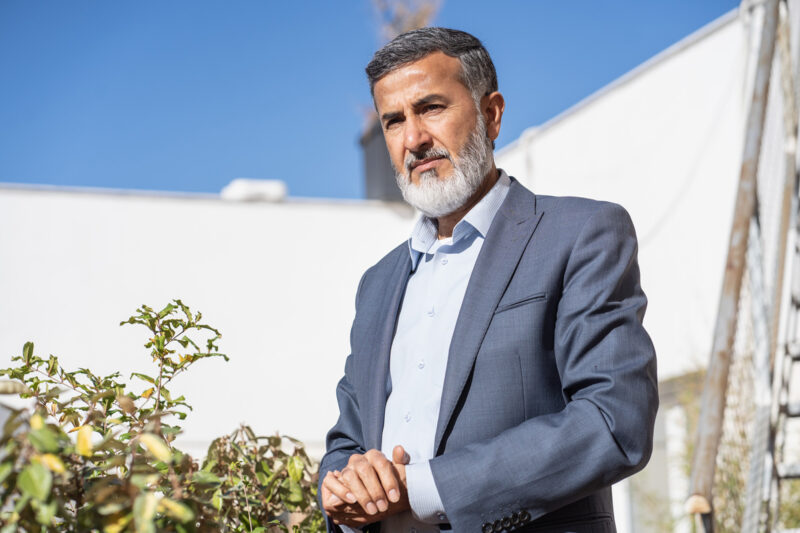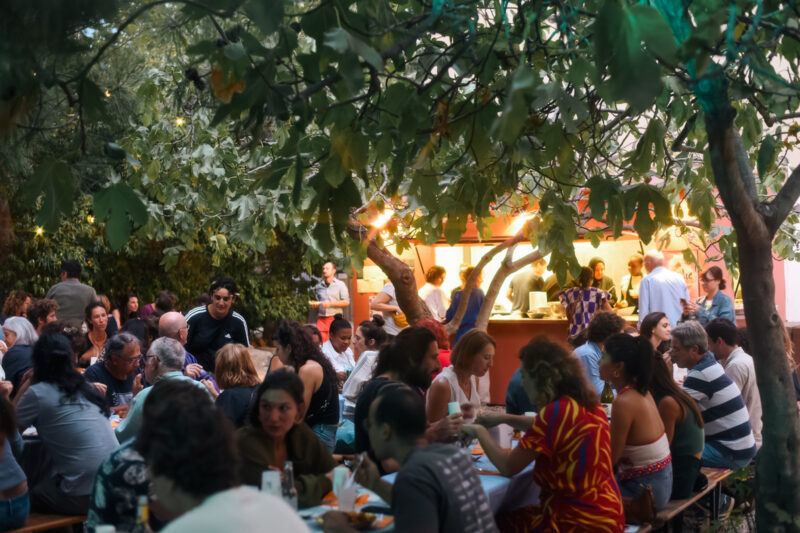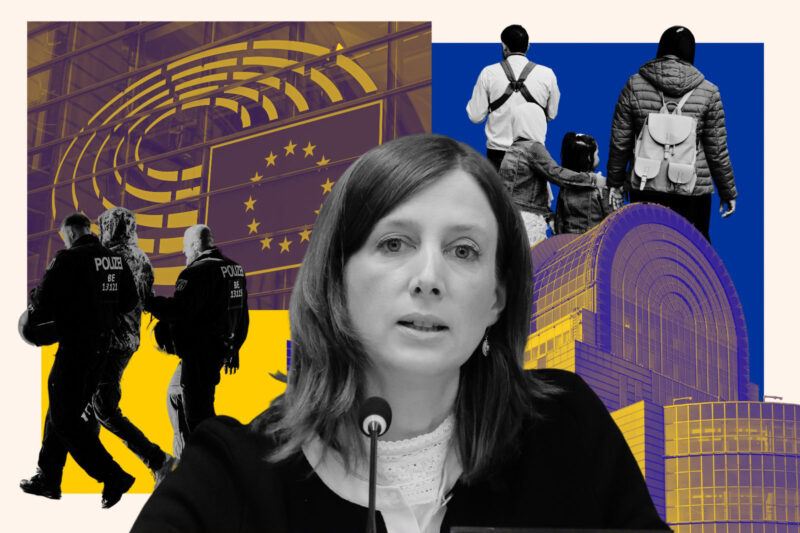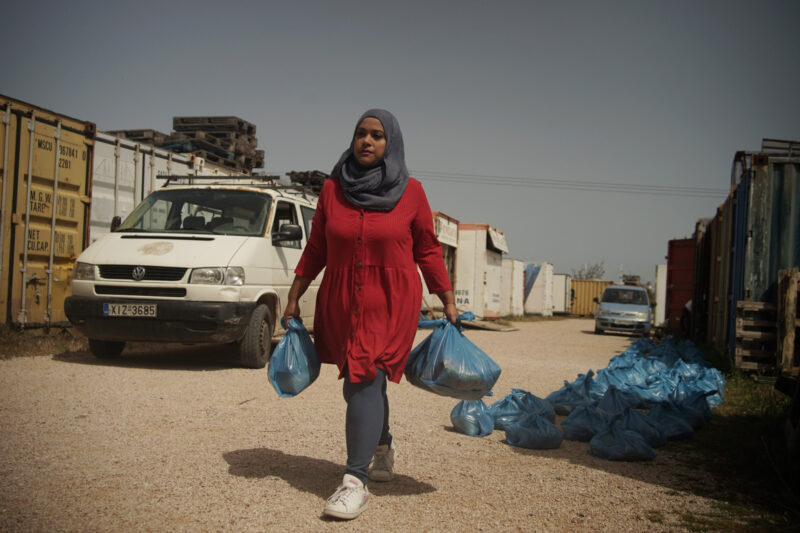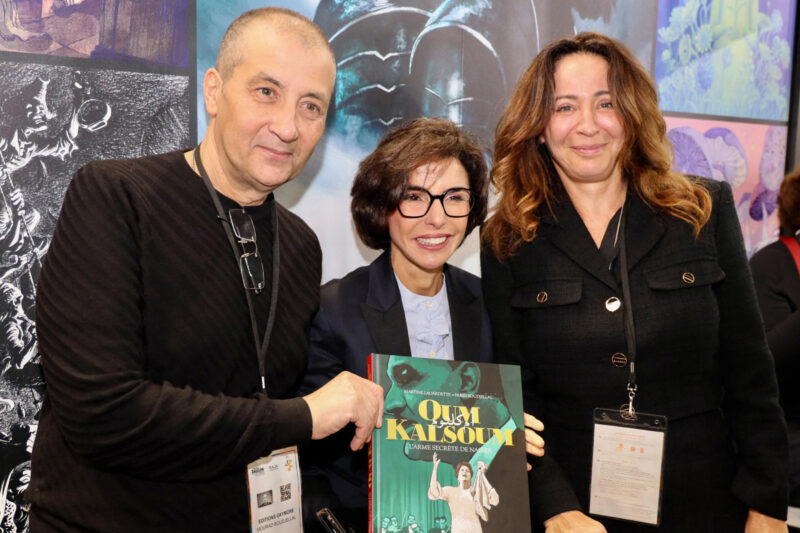Celebrated Italian graphic novelist turns to children’s books
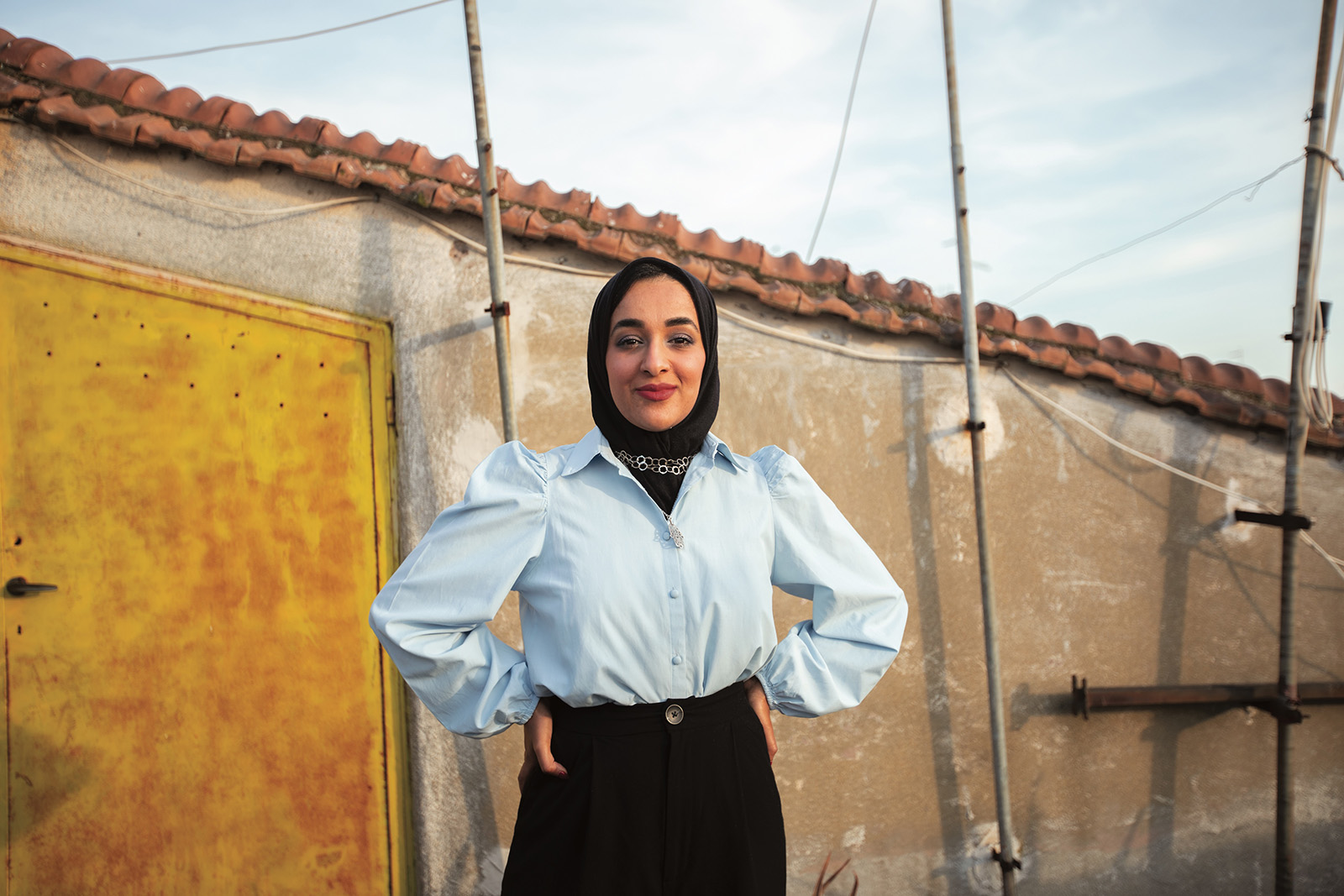
With eight award-winning comics under her belt, Takoua Ben Mohamed now wants to tell stories that will help children tackle anti-Muslim hate
Takoua Ben Mohamed, Italy’s best known hijabi graphic novelist, believes she has found a way to fight Islamophobia. The activist and award-winning author of eight celebrated comic books — inspired by her experiences growing up as a Tunisian immigrant in Italy — wants to write children’s books.
Anti-Muslim violence is on the rise across Europe. In Italy, 1,106 hate crimes against Muslims were registered in 2023 — a number expected to rise in upcoming surveys as a result of the conflict in Gaza. Ben Mohamed, 34, believes that if this trend is to be tackled, new voices have to reach the youngest Europeans.
“When teachers or classmates made racist remarks about my identity, I didn’t have the resources to answer back. I learned how to defend myself through experience. I now want to help kids — especially girls — to stand up for themselves and recognise xenophobic patterns, respond to them cleverly,” Ben Mohamed told Hyphen. “My goal is to dismantle prejudice and help new generations of Muslims in Europe to feel seen.”
A crucial issue for Ben Mohamed is citizenship, something more than one million minors with immigrant background in the Italian education system don’t have. Under the current legislation, applicants for citizenship are required to prove 10 years of continuous residence — longer if your annual income is less than €15,000, or your parents are undocumented. For years, the artist has been campaigning to reform Italy’s citizenship law alongside the group Italians Without Citizenship.
In June, Italy was asked to vote on a proposal to change the residency requirement to five years’ continuous residence for applicants who have been schooled in Italy. Ahead of the poll, Ben Mohamed took to social media platforms to inform and encourage her 31,000 followers to vote but on the day, the referendum did not reach the minimum voting turnout requirement and the attempted reform failed. The result was a deep disappointment for the artist, whose personal experience of the policy has shaped her life and work.
In 1999, Ben Mohamed was a shy but curious eight year-old who had moved with her mother and siblings from Tunisia to Valmontone, a municipality in Rome, through a family reunification program for refugees. Her father — a teacher and imam who openly opposed former Tunisian dictator Zine Ben Ali’s government — had been granted political asylum but it would take his children 23 years to be granted Italian citizenship. Ben Mohamed’s parents still have just permanent residence status.
“I remember being nervous because I was going to a foreign place I knew nothing about, and worried I might not fit in,” Ben Mohamed said. “Those worries were revealed to be partly true. What I didn’t know is that this would become the driving factor behind my whole artistic career.”
Growing up as a Muslim in a post-9/11 European country defined the young artist’s identity. Living in Italy without citizenship — and so without a passport — made it more difficult for her to integrate at school and contributed to a sense of difference. “I was the only brown, Muslim girl in a white, Italian class. I was constantly singled out, mocked by teachers and the other kids. My classmates’ parents wouldn’t even let them play with me,” she said.
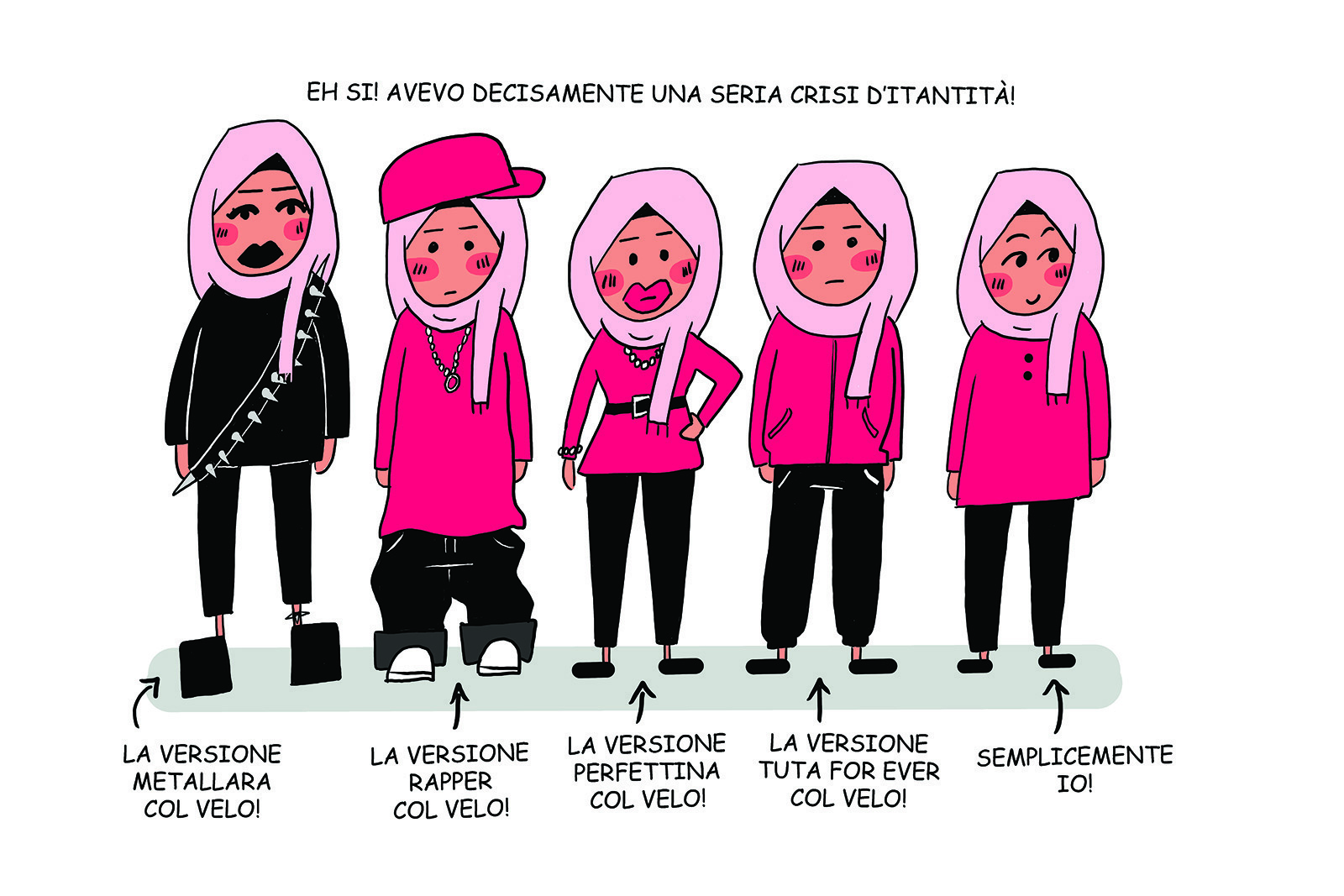
Teachers assumed she couldn’t properly read or write in Italian, even after 10 years in the country, because she was an immigrant who would never be as fluent as a native speaker. It was only as an adult that she was formally diagnosed with dyslexia.
Raised in a family of activists, political refugees and trade unionists, Ben Mohamed grew up around discussions about social justice and human rights. She engaged with this conversation by drawing. It was, she says, a way of communicating that overcame language and cultural barriers: “I found refuge in drawings that I’d use to explore my emotions and try to make sense of what was happening to me with irony.”
Sketches in her school diary slowly turned into longer comics drawn in notebooks, telling with simplicity and irony the daily life of a first-generation Arab and Muslim teenager in Italy. By the time she was 15, Ben Mohamed had produced such an impressive body of work that her father decided to exhibit it at the al-Huda Mosque in the working-class Roman neighbourhood of Centocelle.
“I was overwhelmed by the unexpected positive response. It made me realise how many actually empathised with my situation, how much it was a shared experience for us Muslims in Italy,” she recalled. “I’m glad my family saw the potential of my work earlier than anybody else. Many in Italy believe in the stereotype that Muslim men are closed-minded or don’t support women, but even though my father is an imam, and sometimes we’ve had some disagreements throughout the years, he’s supported my artistic career since day one.”
A decade or so later, these early drawings evolved into hit titles. My Best Friend is a Fascist documents a hijabi schoolgirl’s daily experience of bullying, including a desk mate accusing her of hiding bombs under her veil. In Italian, with permit, Ben Mohamed riffs on the double meaning of the Italian word permesso — which translates as both “excuse me” and “(residency) permit” — to describe a 14-year old divided between two identities, Muslim and Italian.
When her first graphic novel Under the Veil was published in 2016, her work was immediately celebrated but she still didn’t have Italian citizenship. Without a passport, she wasn’t able to attend the literary festivals she was invited to speak at across Europe. After a string of bureaucratic mistakes and issues meeting the financial criteria, Ben Mohamed finally received her passport in the autumn of 2021 — the same year La Repubblica, Italy’s largest circulation newspaper, named her Woman of the Year.
Even as an acclaimed Italian citizen, now based between Rome and her husband’s native Oman, Ben Mohamed says she still experiences the same prejudice she did as a child: insensitive questions about her choice to wear a hijab, patronising comments about an Arab woman succeeding in an “unusual” profession. She is motivated by the idea that illustrating the daily difficulties of immigrant children to other young readers will help to change the experience for a new generation of Muslim European children.
“Comics have the ability to explain complex issues — like the effects of immigration policies or identity matters — in a simple and straightforward way. Some drawings and a few short, ironic sentences or scenarios can cut right to the guts of the issue. That’s why they’re ideal to help change perspectives,” she said.
“Telling a personal story to illustrate a bigger one that resonates with others who don’t feel represented elsewhere — that’s my life’s mission.”
 Newsletter
Newsletter

